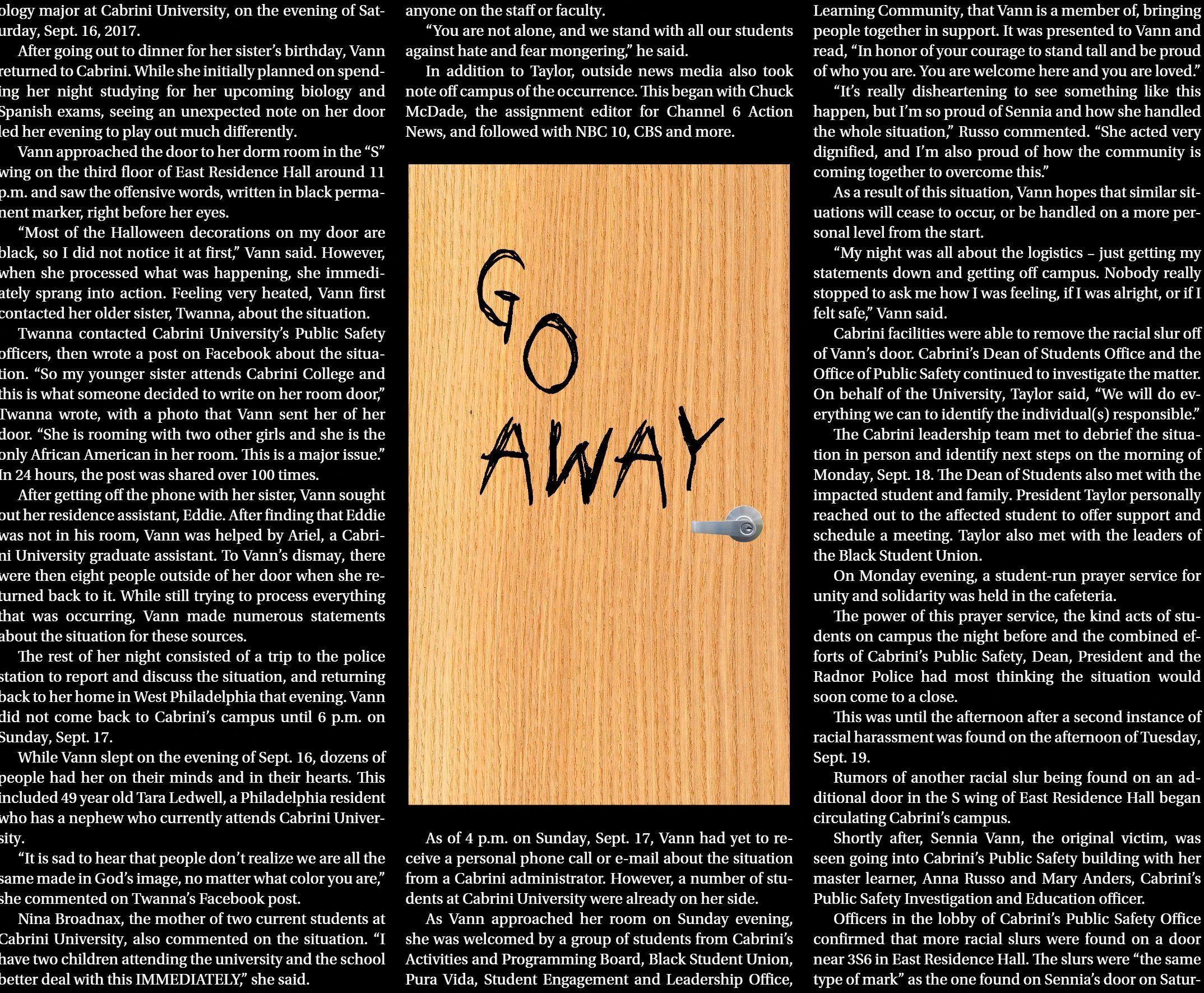“Words are pale shadows of forgotten names. As names have power, words have power. Words can light fires in the minds of men. Words can wring tears from the hardest hearts.”
Patrick Rothfuss, “The Name of the Wind.”
Words have power. Words can invoke immense feelings of joy and passion. They can summon emotions and memories. Words can do great things.
Words can also do tremendous damage. They can spark fury and cause pain. Words are powerful.
In reporting on the horrific, discriminatory slurs directed towards two Cabrini students, Loquitur Media opted to include the offensive word, rather than censor it. Loquitur asks you to consider our reasons and wishes to hear your point of view as well.
According to African American Registry, the slur written on the door evolved from the Latin word meaning black and eventually landed on its current form, the phonetic spelling of the Southern American mispronunciation of “Negro.” By the early 1800s, it was established as a derogatory term and remains one today. Because of its connection to slavery and African American injustice, this term of exclusion is considered one of the worst and most unacceptable racial slurs.
Loquitur does not condone the use of the slur. The decision to include it was not made lightly. After much consideration and deliberation, the Loquitur editors decided to include the slur in the articles.
Loquitur acknowledges that quoting the slur was offensive to many students and understands the impact this hateful speech has. A multitude of our peers from varying genders, nationalities and ethnicities expressed that the use of the term angered and hurt them. These students feel that under no circumstances should that word ever be said, written or seen.
However, an essentially equal number of students thought the use was justified in accurate reporting and many were even passionately supportive of including it. Those students feel that to exclude the slur would be similar to censorship and that it would deny authenticity in telling the story while denying the victims what they experienced.
Some news outlets, such as the local television channels, decided to blur the photo and use asterisks in text. Other news sources say the word may be used under some conditions.
Loquitur follows the guidelines of Associated Press Stylebook, which says: “Do not use this term [the n-word] or the racial slur it refers to, except in extremely rare circumstances when it is crucial to the story or the understanding of a news event.” Loquitur judged that this was one of the circumstances when it was crucial to understanding the event.
In addition to the Associated Press stylebook, Loquitur wrote to editors at the Washington Post, Billy Penn and the Philadelphia Inquirer for advice. They all said that in this circumstance, they would use the word in the quote.
Our staff considered the arguments presented by other students, the Associated Press Stylebook and these professional journalists before ultimately deciding to keep the slur uncensored.
Loquitur stands by its decision to include both the photograph of the slur and to quote it but regrets that this word was ever inscribed in students’ doors and that it needed to be written about.
As always, Loquitur accepts and encourages feedback from the community. Students can submit letters to the editor as well as reach out to individual members of Loquitur in person and digitally. Our email is loquitur@cabrini.edu.
“I have hated words and I have loved them, and I hope I have made them right.”
Markus Zusak, “The Book Thief.”




you could be on the proverbial slippery slope…………once you(loquitur) use the most offensive of offensive slurs once will you be obligated to use it when this happens again…………and would you have used it if the slogan contained the n word followed by c**t